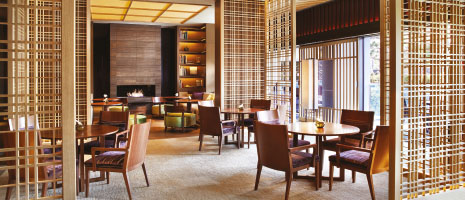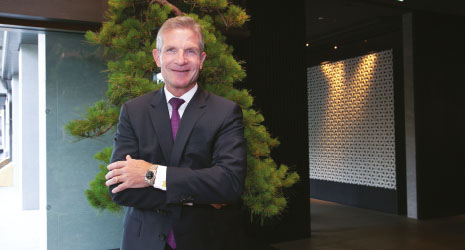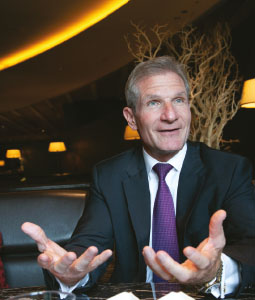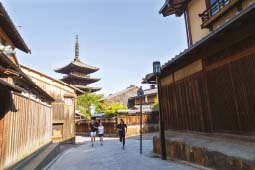Home > Highlighting JAPAN > Highlighting Japan September 2018 > My Way
Highlighting JAPAN


What It Takes To Lead Japan’s Best Hotel
The Ritz-Carlton, Kyoto has garnered many awards and has a glowing reputation among travelers both domestic and foreign as one of the best hotels in Japan. Mark Neukomm, the hotel’s general manager, reveals what he has learned about Japan over his more than two decades in the country.
Mark Neukomm was born in Switzerland—a country famed for its apprentice system and the training of craftsmen—and began his professional life as a chef four decades ago at the age of fifteen. After completing a three-year apprenticeship, he moved on to a well-known hotelier school in Lausanne. There he studied service, management and foreign languages and earned his diploma. He went off to a hotel industry internship in Tokyo, thinking it would be a good challenge for a European like himself, and has ended up spending a total of twenty-two years in Japan.
Neukomm’s first Asia posting after joining The Ritz-Carlton was Shanghai in 2000. Since then he and his family have lived in Osaka, Bahrain and Moscow, and he has now been general manager at The Ritz-Carlton, Kyoto for the past three years.
According to Neukomm, managing a hotel in settings featuring Asian and other non-Western culture and history—with his own original touches added—is the most fun he’s ever had. In Kyoto, the hotel’s calming interior design—done in the style of a traditional row house—is popular with guests, as is the original running course among local shrines and temples, where Neukomm sometimes joins the other runners.
“The Ritz-Carlton is a luxury urban resort, so staying at the hotel is a creative experience for guests, who can enjoy elements of the local culture as they prefer,” says Neukomm, ever the professional. “Involving the staff in creating inspiring experiences for our guests to enjoy is our mission. Seeing them create unforgettable memories is the greatest pleasure of hotel service.”
When asked about his long tenure in Japan, he laughs, saying he never expected to stay this long. He believes that the Japanese countryside and cities each offer their own cultures and characteristics, and finds the depth of Japanese cuisine, the beauty of nature—exemplified by cherry blossoms and autumn leaves—and the country’s long history and refined culture endlessly fascinating. Under the influence of those charms, Neukomm has advanced his career as an hotelier who knows Asia.
Japan’s heart resides in its culture of manners, cleanliness and discipline. Neukomm sees the natural hospitality of the Japanese in how Gion Festival attendees clean up their own litter and preserve the beauty of the city even amid the festival’s hustle and bustle. That is also a strength when running a hotel in Japan. The general manager sometimes struggles to balance the needs of both international and Japanese guests, but in Japan Neukomm has found his employees’ talent and hospitality suggestions are always a great help.
Neukomm loves his present home of Kyoto, and experiences it with his feet while he enjoys both the public and private delights of running. He has developed some popular running courses himself, and runs with the guests to guide them.
As an hotelier, he continues to pursue various approaches to please his guests. Neukomm’s goal is “to live a satisfying life,” as well as to maintain a strong will, achieve success for himself and his family, and support society as a whole. His philosophy of working patiently, day by day, to improve and delight is common to both Japanese and Swiss craftsmen, and may well be why Neukomm has found such success in Japan.
© 2009 Cabinet Office, Government of Japan








